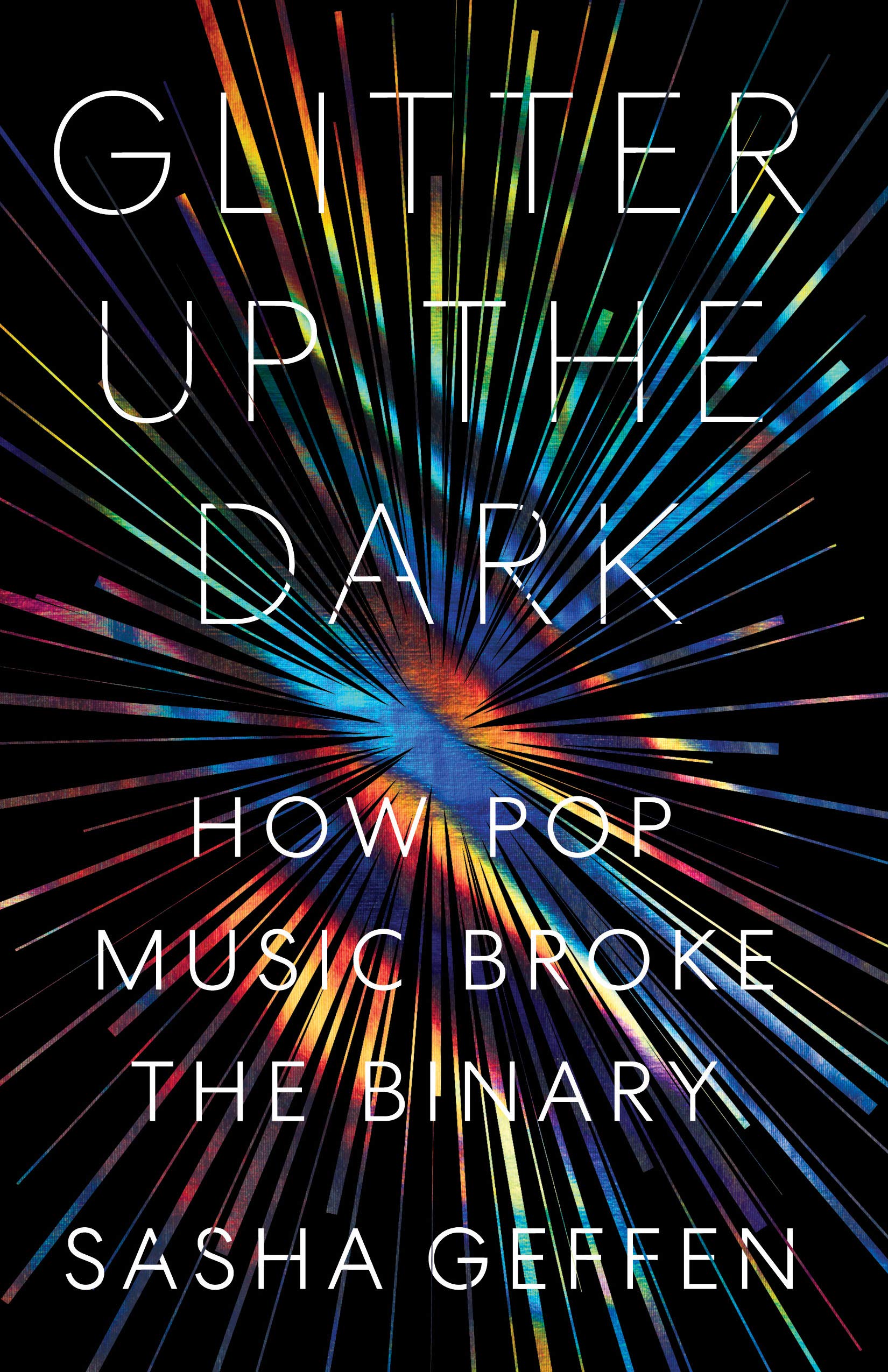NBCC members: If you’d like to contribute a review of an eligible book for the 2020 Leonard Prize, write to NBCC board member Megan Labrise at labrise@gmail.com. Read the rest of the reviews here.
Glitter Up the Dark: How Pop Music Broke the Binary by Sasha Geffen (Univ. of Texas)
Pitchfork writer Geffen’s debut work of criticism is one of the year’s most exciting books. It arrived this past winter, and gradually it’s been making the rounds. There was a review in Bookforum, a piece in Vulture. It deserves to be a sleeper hit. Despite ten pages of scholarly notes and plenty of trenchant critique, it’s deeply readable. You should make a playlist while you read it. Or steal mine. It’s the kind of book you’ll enjoy arguing with. It will change your mind and open your ears. When you’re done, you’ll order it for friends.
In 12 interrelated chapters with titles such as “Oh! You Pretty Things,” “Not a Woman, Not a Man,” and “God Is Gay,” Geffen outlines a staggering history of gender transgression in recorded music. Their interest is centered on the strategies of artists over the past 100+ years who defied contemporary society’s expectations of gender expression. Along the way, they build on work by Wayne Kostenbaum and others in search of answers to questions such as, “Why is music so inherently queer?” How does a disembodied recording lead the listener to uncover a new place inside herself, where suddenly the voice of David Bowie or Prince or Iggy Pop becomes her voice?
There’s more at play than gender. Geffen notes that the status quo for the American gender binary has been historically white. Black women blues artists managed to release blatantly queer music in the 1920s because they were already marginalized, while changes to the status quo came through the absorption of white artists like Elvis Presley who appropriated Black music. Meanwhile, Black artists have often been written out of the history of various innovations and subcultures (see Geffen’s revelatory appraisal of Labelle and glam rock). The parallel discussion of race creates a thrilling tension in Geffen’s criticism.
Like John Waters, as you’ll find in Waters’s last book, Mr. Know-It-All, Geffen has great taste. You might not like all the music, but they’ll make you understand its appeal, perhaps for the first time, and they gift you all the right gateway tracks. There’s Lucille Bogan’s “BD Woman’s Blues,” the “Sapphic androgyny of Prince,” the “benevolent yet unknowable omnipotence” of Laurie Anderson’s vocodor manipulations, the Beatles’s talk about “Boys” (“boys trying to be girls who are sick of what it means to be a girl,” writes Geffen about the band’s cover of The Marvalettes’ “Mr. Postman”), the “exaggerated valley-boy yawp” of Blink-182, Salt-N-Pepa’s adoption of masculinity to compete in the male-dominated hip-hop space, Janelle Monáe’s Afrofuturism, the “slippery, confounding, and transcendent” sound of Acra and Perfume Genius, and so much more.
Geffen’s vision is one for the ages.


